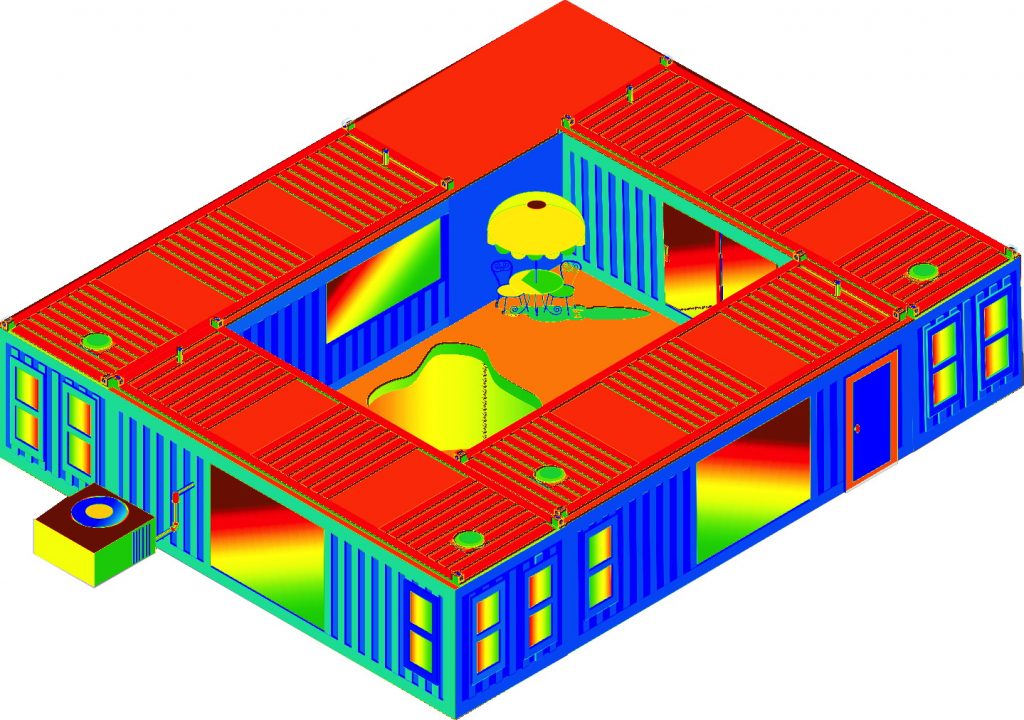Tech Launched A Big Push To Fix Cities. What Happened?
IN 2016, A YEAR THAT NOW FEELS LIKE A DISTANT, BYGONE EPOCH, Y-Combinator made an announcement that made techie urbanists giddy. The venerable startup accelerator, which was started in 2005, was going to launch a new venture to reinvent cities of to-morrow. The effort was trumped up, or, variously, pilloried, in various media channels. Emily Badger put it the most bluntly: “Silicon Valley wants to save cities. What could go wrong?” But after the fall of 2016, the project mysteriously vanished into the ether, as though it were a public infrastructure grant waylaid by the Trump Administration. In this piece, we’ll take a look at a few projects that tech has launched in the past six years and see just what happened to them.
Challenges face former Cheezburger CEO joining Y Combinator’s New Cities project
Sidewalk Labs
Google-capitalized Sidewalk Labs was launched in 2015 and was arguably the first tech company to bust onto the scene. Sidewalk has launched a number of projects and is an umbrella for a few enterprises that do different things ranging from modular housing development to #data. It’s not entirely clear what they’re up to, and so much was apparent in their abortive Quayside project, or a similar one in Portland that failed to get off the ground. Critiques of their model– or their struggles with developing a sound public relations apparatus- are well beyond the scope of this article. What is clear, though, is that Google diving headlong into the pool of urban innovation was a sort of bat signal to the world of VC-backed dreamers. Sidewalk’s launch may well have been the seminal event that catalyzed all of these competitors. It is, however, notably the only one that is actually, well, doing stuff. They’re also investing in infrastructure– Sidewalk Infrastructure Partners and Cavnue, for example.
Social Construct’s computer-optimized buildings could shake construction industry’s foundations
Samara (AirBnB)
AirBnB also busted onto the scene with Samara. The motivation– beyond bandwagon-jumping, certainly- was to use the company’s newfound position of power in the global market to figure out how to beneficially transform some of the markets that it was alleged to have screwed up with its short-term rentals in the first place. AirBnB perfectly captures everything I love and hate about Silicon Valley. It’s a clever model. The product is, by and large, pretty good. The platform works well, for the most part. And I freely admit that I use it when I travel because it’s more fun than staying in some sanitized, faceless hotel room. But the company has also deservedly come under fire for failing to mitigate the negative effects of companies essentially turning what would be good, affordable housing in the mid-market to short-term rentals, within markets already intensely constrained for new development, thereby driving up prices of housing and driving down the availability of good housing.
The Business Considerations
Samara was meant to address that in part while helping AirBnB build its own offering with more curated experiences. There’s a value proposition to what AirBnB is doing here in that it would have diversified its revenue streams. Thence the “experiences” part of AirBnB as they look to become a full-service travel agency, or whatever. Of course, having to own buildings is kind of awful if you’re not, well, a real estate company. Balance sheets become quite clumsy quite quickly when they start with tech capitalization and suddenly are holding a bunch of real estate. So, this wouldn’t be a good thing. That’s why you partner with other companies to do it.
Anyway. What happened? No one really knows, and it looks like Samara has morphed into Backyard. This new venture seems to have more to do with sustainability. Or something. From the website, somewhat vacuously:
Backyard is an initiative to prototype new ways that homes can be built and shared, guided by an ambition to realize more humanistic, future-oriented, and waste-conscious design. It investigates how buildings could utilize sophisticated manufacturing techniques, smart-home technologies, and vast insight from the Airbnb community to thoughtfully respond to changing owner or occupant needs over time
Are they building buildings? The job postings associated with this position suggest a classic Silicon Valley interest in engineering and design, but do not allude to much in the way of execution. This is the idea that scale is the only thing that matters, and a well-engineered solution allows for scale. Monetization follows scale. Engagement with humans is tertiary. Context is, well, perhaps … quaternary, I guess? Modular housing, though, maybe.
Urban Innovation, or… Memelording? What?
Well, we can go back to the beginning. Ben Huh was chosen to lead the Y Cities program. Who the helll is Ben Huh? Great question. I wouldn’t expect a Silicon Valley firm to hire, say, a former HUD secretary, nor even an urban design professional. I might expect them to hire some Greg Lindsay or Richard Florida type. A Thought Leader, you know. Or someone with experience in real estate development. The interesting thing about real estate development is that you can successfully execute projects of various sizes as long as you have a general understanding of how buildings work, how money works, and how illiquid that money becomes when it’s invested in real estate. This is why you see strip mall developers from Florida moving to Detroit and then developing half-decent adaptive reuse projects. A tech bro, though? Now we’re talking!
I’m not qualified to rule as to whether Huh is indeed actually a tech bro, but he is arguably one of the people who figured out how to monetize the meme. He acquired I Can Haz Cheezburger, a blog of, well, dumb animal pictures, basically. In 2007, and, as though overnight, he built an internet empire built on advertising revenue. It is not a stretch to suggest that Huh may well be personally responsible for the preponderance of cat videos on the internet. For this he might be praised. Or reviled, one.
Do meme skills qualify someone to run an urban innovation lab?
Well, I mean. No? Taking a wild guess? Probably not? But really, who are we to say? After all, to quote our good friend Nithin Vejendla: who made me the arbiter of what is justified and acceptable? (Oh, and it was me, Nithin. I made me the arbiter of what is justified and acceptable).
Anyway, if you’ve got money, you can more or less do whatever you want. Y-Combinator is a private company, so it’s hard to tell exactly how much they are worth. They have, however, invested in or partnered with some of the biggest names in tech. In 2017, their investment portfolio was worth around $80 billion. And once Google projected that great urbanist bat signal into the sky, or whatever, well, it was off to the races.
Tech Utopianism Built On Someone’s Hubris
Wrote Emily Badger:
For others in tech — intrigued by word of a proposed smart city in Arizona, a big Bitcoin land grab in Nevada, a special economic zone in Honduras — fantasizing about newly built cities has become a side gig. They dream of utopias with driverless cars, radical property-ownership models, 3-D-printed houses and skyscrapers assembled in days […] While some urban planners roll their eyes, it is true that America’s cities have always been built on someone’s hubris, whether the characters who plotted Manhattan’s street grid, or those who imagined the Golden Gate Bridge.
There is obviously some value in how tech is thinking about cities. Cities are scale machines. This is apparent in terms of how they are physically built, how they aggregate human and intellectual capital, and how they generate massive economic output. You know, a 2+2=7 kind of a thing. Still thinking about platform economy– they refer to this as “positive network effects.” So, that’s all intriguing. Or, at least, it would be, if it were couched in some sort of realistic presentation.
The Quiet Pivot
Nay, what YC did do with the Y Cities project was allow a sort of quiet pivot to a very specific thing. That very specific thing– according to what we can see publicly, at least- is now the Social Construct Company. Clever name, huh? Nah, we didn’t really think so either. Is the product clever? I don’t know– it’s hard to see when they won’t talk to us. Modular building is very popular these days, though. Sidewalk and Social Construct both appear to be involved in this race to build The Next Big Modular Housing Thing. I have a lot of feelings about modular (shocking, I know). They’re generally good feelings, though! Samara’s project, which appears to have morphed into Backyard, might well also be doing modular. Modular homes for everybody!
It’s a noble idea. Sidewalk Labs in particular is looking at heavy timber framing in modular., This is some real life, hardcore stuff. Building nerds are in ecstacy over the increasing interest in heavy timber framing. TLDR: It’s a greener way of building things without as much concrete and steel. Less carbon footprint, more natural materials.
The “quiet pivot” is a term I’ve coined here to refer to something that didn’t quite end up how it was originally announced (with great fanfare). My planner friends and I talk about this all the time. It’s something that happens a lot in the real estate development world. Some suburban bros announce that “We’re going to build this food hall!” Then, four years pass, and nothing actually ends up getting started. It’s kind of a tail-tucking thing for a company to have to do. Because it indicates that they didn’t succeed at what they originally started doing. And now they have to reposition, repackage, and restart. This has happened with GM and Ford in recent years amid the highly frothy, overcaffeinated markets of “new mobility.”
Conclusion: If You Can’t Beat ‘Em, Hold ‘Em Accountable
What’s for sure is that tech companies aren’t going away any time soon. You don’t have to like their involvement in the urban development space. But it is somewhat an inevitability– at least as far as the inexorable march of capital is concerned. What’s certain is that they’re really lousy at communicating about what they’re doing. They’re also apparently pretty bad at partnerships. So much is apparent in the failure of the Sidewalk Labs projects. It’s not to say that the companies themselves are bad or unsuccessful at large. They just weren’t able to realize their vision. Of course, the mantra in tech is to fail fast– and fail up. In other words, these are, one might hope, stepping stones on a path toward something better.
Neither Sidewalk Labs, nor Y-Combinator, nor Social Construct, nor AirBnB, nor Samara responded to multiple requests for comment for this story.







